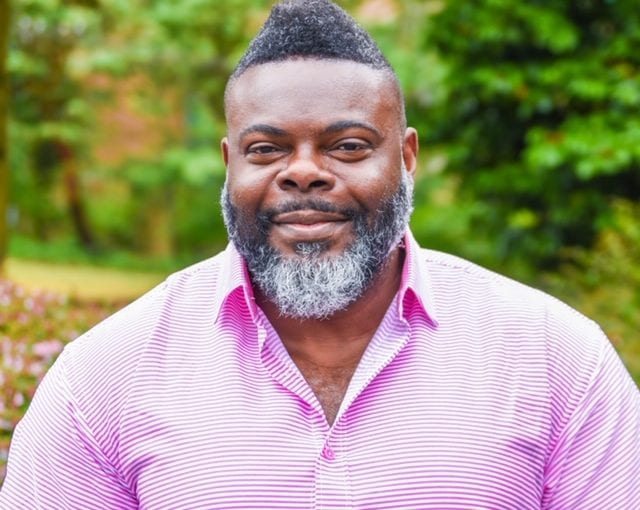[Meet the Instructors is a series intended to introduce you to one of the greatest resources the University of Washington Tacoma Professional Development Center has to offer: its diverse team of veteran, industry-tested professionals. The Center’s professional development programs are designed to be rewarding, challenging and cutting-edge. Our instructors play no small part in that, ensuring students are exposed to the most current industry trends while remaining well-versed in the tried-and-true best practices of their professions. We’re excited to share our instructors with you, and their stories are a great place to start.]
Tell me a little bit about yourself.
My name is LaMont Green. I am a descendant of the Gullah Geechee people from the Low County area of South Carolina, where I was born. I’ve lived in Tacoma for over 20 years and graduated with a degree in Social Work from UW Tacoma – I love our diverse community!
For nearly 20 years, I have worked to help local communities and governments identify and dismantle the persistent drivers of inequity across human services, homelessness, housing, behavioral health, and criminal justice systems. I have been very fortunate to lead several community-driven initiatives centered on improving care systems for complex health and historically disenfranchised populations. I received a Doctorate of Social Work from the University of Southern California with a focus on harnessing social innovation to address the Grand Challenge of Achieving Equal Opportunity and Justice for All. But, most importantly, I am the father of 2 wonderful Labradoodles – Buddy and Brodie:-)
What led you to your Special Initiatives Director position for King County?
King County was awarded a 5.4 million dollar grant from HUD – the Youth Homelessness Demonstration Program (YHDP) – to test strategies to end unaccompanied youth and young adult homelessness effectively. I was hired to implement the program and lead King County’s Campaign to End Youth Homelessness. The Youth Homelessness Demonstration Program resulted in significant reductions of unaccompanied youth experiencing unsheltered homelessness by advancing young adult voices and participation in governance, design, and evaluation of housing and supportive services.
Youth Homelessness has been an issue close to my heart for some time now. As a young man, after military service, I became homeless, depressed, and drug-addicted, struggling with my own internalized demons resulting from living in a society that constantly reminded me that due to my skin color or sexual orientation that I am inferior; I do not belong, and I am a second class citizen. Luckily, as a Veteran, there were services available to help support my recovery; however, this is not the case for many young people in our community. Black, Brown, Indigenous, LGBTQ, and Trans* youth are tremendously overrepresented in the homelessness system due to the generational impacts of systemic oppression intersecting with race, gender, and class.
I enjoy this work and learn so much from young people experiencing homelessness. Their resiliency, creativity, and bravery in the face of rejection, othering, and shaming fuels me to join with them and others to create liberating communities where we all belong and have opportunities to thrive.
Who do you see benefiting from these two day-long workshops on institutional racism in the nonprofit sector?
Anyone and everyone that works in the nonprofit sector. This training is beneficial for case managers, nonprofit executives, board of directors, program directors, senior leadership, data specialists, outreach specialists, behavioral health professionals, medical staff, etc. We all play a crucial role in ensuring that we address the persistent drivers of inequity.
What are your goals for students to bring back to their organization?
There are three things that I want students to learn and bring back to their organization:
- A deep understanding of the history of systemic racism and connecting that history to present-day manifestations of inequity;
- Gaining greater competency in identifying, describing, and undoing organizational policies, procedures, and practices that continue to drive racial disparities; and
- Becoming familiar with helpful frameworks and tools that can be utilized to lead programmatic and systems change efforts that eliminate racial and social disparities.

